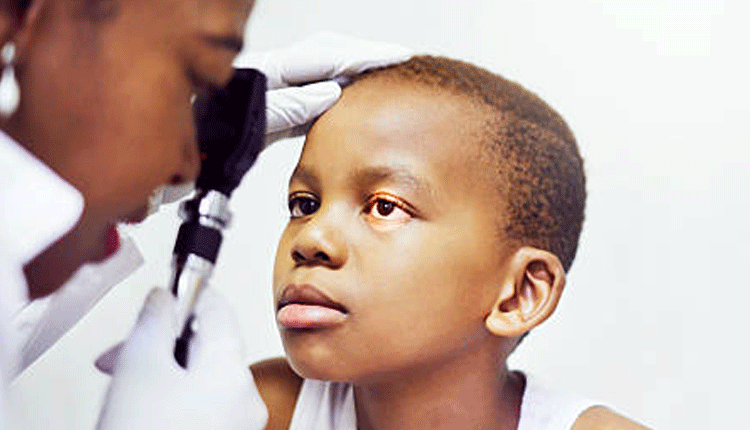Eye care in the Internet age

The time adults spend in front of screens has increased with the increase in internet dependency to achieve work objectives.
Screen time among toddlers and young children has also increased with time as parents use YouTube and children channels on television to babysit and pacify children.
This means people are exposed to more blue light, which may lead to eye problems later on in life.
Moreover, people in the tropics do not wear shades to protect against the sun’s glare.
Oliver Mwanko from Lapaire Glasses says trends tend to affect health and co-related lifestyle and may result in preventable eye ailments.
While it is easy to notice harmful trends and comment on them, it is much harder to tell when a young child is suffering from a refractive error such as long-sightedness or short-sightedness, whether the issue is inheritance or lifestyle-related.
Abigael Njiru, a mother of a young girl who is currently wearing glasses, says how hard it was to trace exactly what her daughter was ailing from.
“Jessica, my daughter is short-sighted. We did not know this. She used to squint a lot when looking at things and would always move closer to things to see them clearly. She had to sit close to the blackboard, for instance.
She also had a hard time reading, which affected her grades. She had frequent headaches, which could not be attributed to any exact thing.
This is when a friend suggested we try to see an optometrist, as eye strain could cause headaches.
After a series of tests, we discovered she had myopia, a refractive error where far objects look blurry.
We decided to get her glasses as contact lenses are harder for young children to take care of.
The headaches went as she no longer had to strain to see and we are glad we had her eyes checked out in time before her grades were too badly affected,” Abigael shares.
Eye ailments and headaches
Diana Langat, an optometrist at Lapaire Glasses, was part of the team that diagnosed Jessica with short-sightedness. She explains that there are several symptoms people can look out for before going for an eye check-up.
If the child has to move closer to something to read it, or tif hey find either objects near or far from them blurry , (objects that a normal-sighted person should be able to see), frequent headaches, squinting, lack of attention, which stems from illegibility and tiredness, parents should take the child for eye tests to make sure everything is okay. This is important as eye strain tends to make the eye conditions worse.
Langat says several tests need to be done before any diagnosis is reached. The main ones are visual acuity tests, which determine the visual capacity of a person, and refraction tests, which determine the powers of the eye lenses. Power of lenses would be needed to give clear vision if necessary.
“There are four major refractive errors; farsightedness, shortsightedness, astigmatism, where the cornea or lens of your eye is curved more in one direction than the other (oval-shaped) and the image is, therefore focused more strongly in one direction than the other.
The other one is presbyopia, a condition common among people 40 years and above, where one has difficulty seeing in dim light and focusing on fine print and objects that are close because the lens becomes less elastic and cannot bend light properly with age.
Refractive errors are dependent on a lot of factors, which include age of the patient, their lifestyle, and working conditions,” Langat shares.
Myths and lifestyle tips
While parents are quick to rush children to hospital if they have a cold or show symptoms of any other disease, Abigael notes that some problems such as eye problems are not taken with the gravity they deserve.
She says there are people who believe glasses worsen the natural eyes’ lens power. Others believe glasses are a sign of prestige hence they desist from getting their children glasses even when they need some.
Langat says with correct tests and lens power, someone’s eyesight should not deteriorate from wearing glasses.
She emphasises the importance of going to a reputable optometrist and ensuring thorough tests are taken before glasses are issued.
For those with desk jobs that require a lot of screen time or have children who are always on their screens, one can get them glasses with blue light technology, which reduces the harmful light exposure.
“It is also important to emphasise on the impact of a great lifestyle. Ensure your family eats a diet rich in omega-3 fatty acids, lutein, zinc, and vitamins C and E.
Limit screen time and ensure everyone has sufficient sleep to limit eye fatigue. If you smoke, quit as it damages your optic nerve and causes macular degeneration.
Limit exposure to air conditioners as they tend to dry out the eyes,” Langat says in ending.








